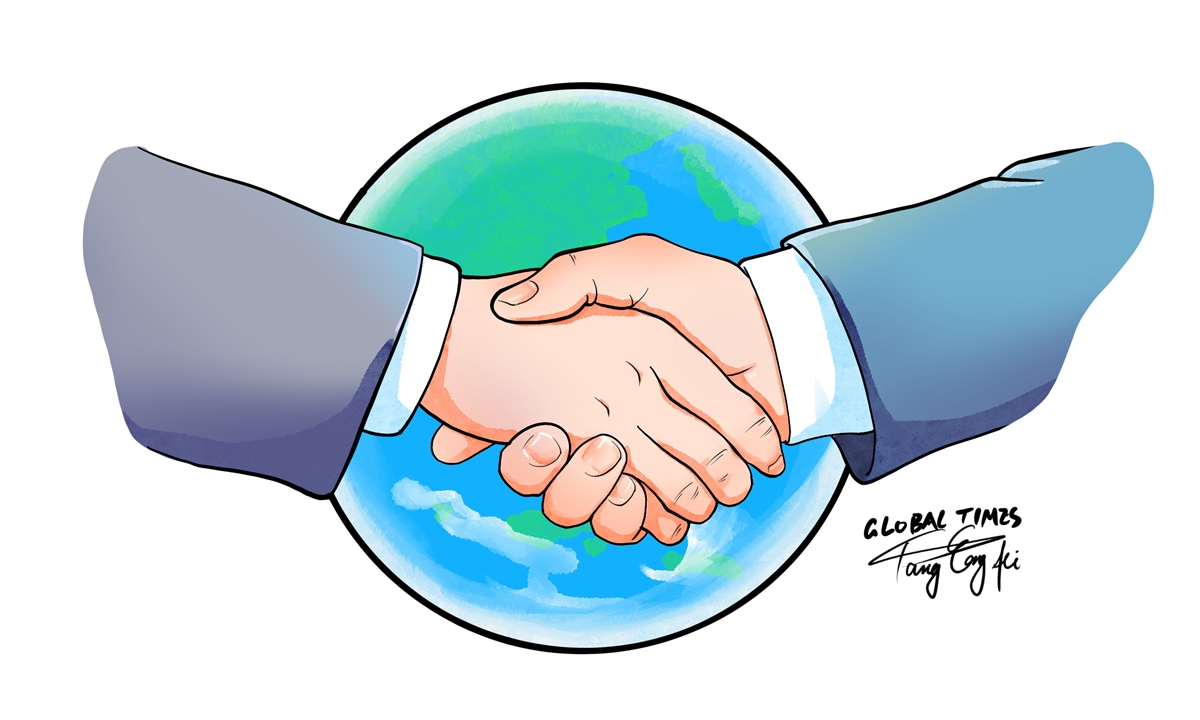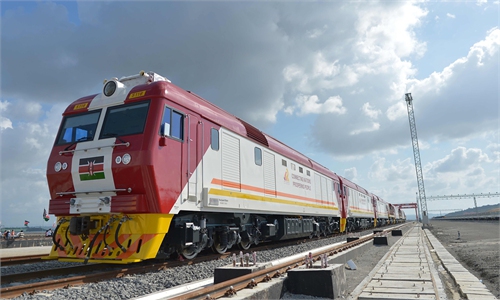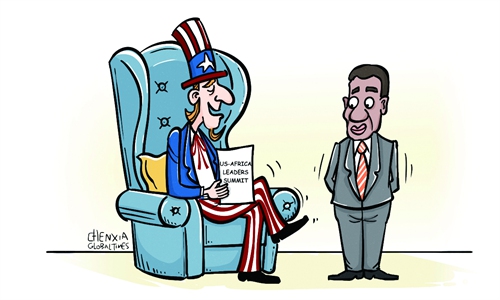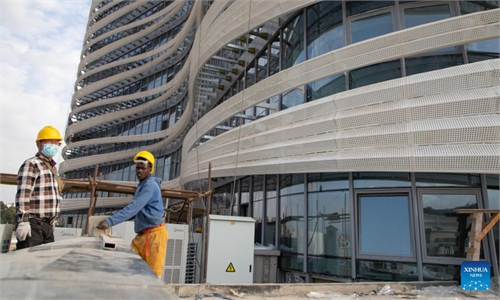
Illustration: Tang Tengfei/Global Times
Since Chinese Foreign Minister Qin Gang recently kicked off a tour of five African countries - Ethiopia, Gabon, Angola, Benin and Egypt, some foreign media outlets have launched another round of hype over the "great powers' escalating game in Africa."In fact, it has been a 33-year tradition for Chinese foreign ministers making their first diplomatic visit at the beginning of each year to African countries. This has nothing to do with the timing of the US-Africa Leaders' Summit in December, or the fierce geopolitical game being played by foreign powers in Africa.
Still, the visit has touched the nerves of some Western countries, which are expected to pay more attention to the continent.
The upgrading economic and trade cooperation between China and African countries is making Western countries re-examine the economic value of Africa. Africa has not been an investment priority for Western companies for a long time, despite local labor advantages and hidden market potential there. For some multinational companies from European and North America, it's less attractive to make huge investment to support local development in Africa.
In contrast, China has been providing sincere support and assistance to local development in Africa for decades. The free aid and interest-free loans provided by Chinese government have helped Guinea, Mali and other countries build industrial infrastructure, including cigarette plants, textile assembly lines and sugar factories.
There is a huge difference between the investment of Chinese companies in Africa and the Western companies who are envious of the leading position of Chinese companies and eager to plunder strategic mineral resources in Africa.
The growing mutual trust between China and Africa has driven the West to push Africa to choose sides. As early as the 19th century, European countries held the Berlin Conference that divided Africa. The US' focus on Africa began when it wooed Africa during the Cold War, but it ignored the continent at the end of the Cold War.
The Forum on China-Africa Cooperation (FOCAC) launched in 2000 has pushed the China-Africa mutual trust to new highs. The West has been crippled with rising anxiety. Clutching on to their deep-rooted colonial mind-set the US and European countries think the "power vacuum" in Africa is being broken, as China's Belt and Road Initiative is progressing in the continent.
The Biden administration last August announced the US Strategy toward Sub-Saharan Africa. Although the US-Africa Leaders Summit last month sought to avoid mentioning China in its agenda, the discussion has been focused on "China influences" there.
China and Africa strengthening security cooperation has made the US step up its military maneuvers in Africa. It would drive Africa turn to strengthen security cooperation with emerging market countries.
In recent years, China has actively participated in the UN's peacekeeping operations in Africa. China has also built a military supportive base in Djibouti to help Africa deal with piracy and the problem of illegal refugees. China has also combined development cooperation to help Africa solve its food security crisis.
China's sincere support has been distorted by the Western media - like "China's security support for Africa will eventually flow back to China in the form of arms sales, thus putting African countries into a more serious 'debt trap.'"
Looking at the West's Africa strategy, besides its deep-rooted colonial mind-set, Africa has been at the bottom of their list of priorities. Before the FOCAC, media outlets in Western countries barely reported on the continent. Yet, the attention put on Africa by the West due to its cooperation with China is not benefiting Africa.
China supports the continent to promote integration, remove the undue influence of "super powers," and forge its own development agenda.
The author is professor with School of International Relations and Diplomacy, Beijing Foreign Studies University. bizopinion@globaltimes.com.cn



